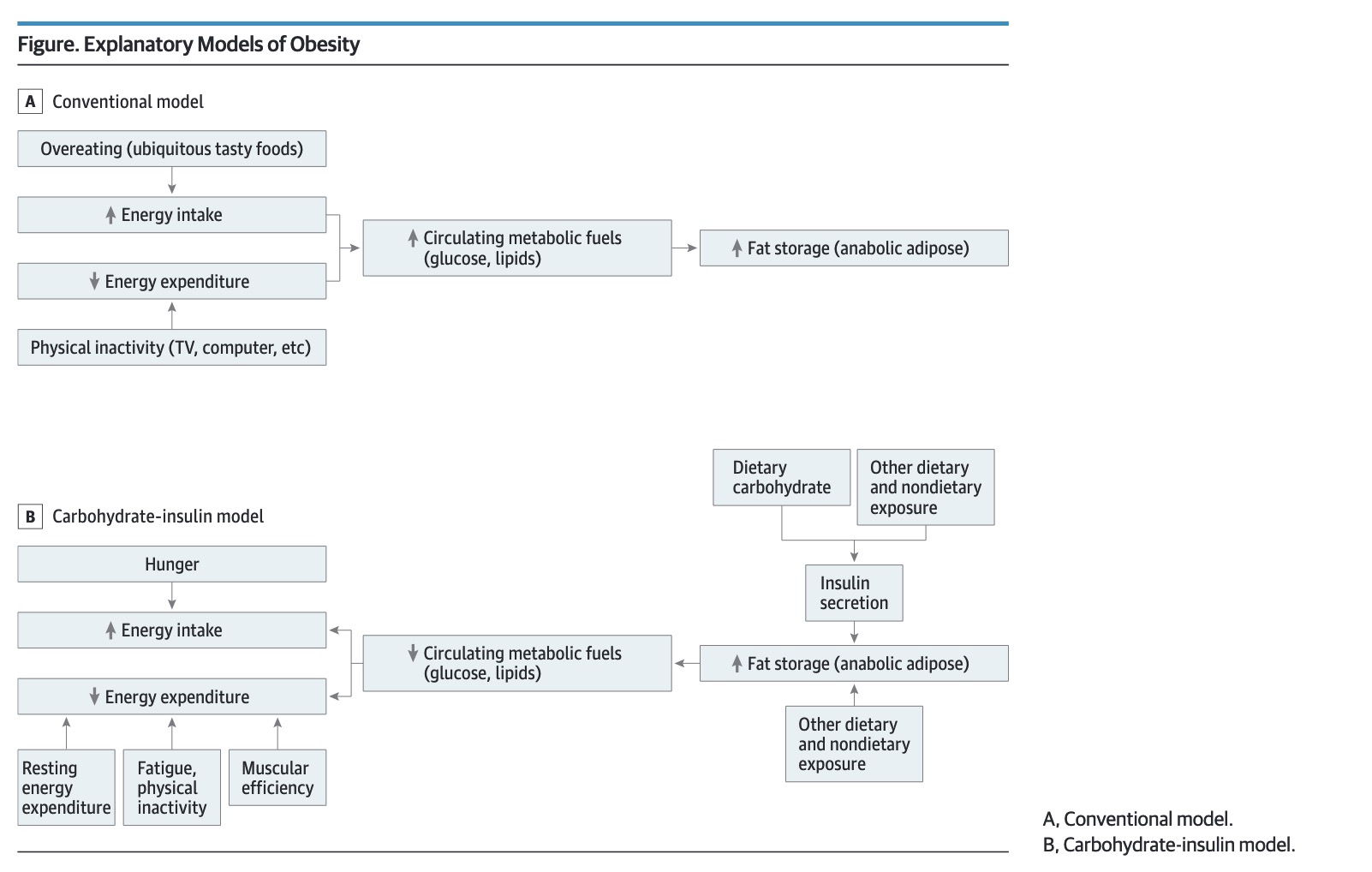this post was submitted on 14 Mar 2025
7 points (100.0% liked)
Metabolic Health
104 readers
1 users here now
A place to discuss metabolic health research, papers, talks, etc.
This topic can touch upon many people's personal triggers, so please be civil.
Rules
- Be nice
- Stay on topic
- Don't farm rage
- Be respectful of other diets, choices, lifestyles!!!!
- No Blanket down voting - If you only come to this community to downvote its the wrong community for you
The banner poster in high resolution can be found here
founded 6 months ago
MODERATORS
you are viewing a single comment's thread
view the rest of the comments
view the rest of the comments

I think this leads people to draw the wrong conclusions about activity and weight. They are correlated, but most people think active people have less weight.
But really it’s much more likely that certain people’s hormones only tell their body to store a little fat. If they eat more than is needed for that, the body must burn those calories, so they are then more active.
But people so often think that they need to exercise if they need to lose weight. (Additionally, this may be counterproductive because if your hormones needed to store fat, and you’ve burned the calories already, you’re going to be more hungry, and trying to resist that is just torture.)
Some populations are very sensitive to carbohydrates, native americans for example. So there is a spectrum of carbohydrate tolerance out there.
Exercise is healthy, but not a great way to lose weight by itself. But exercise is a good adjunct to a weight loss program. The hormone insulin is driven by diet, if the diet is clean and insulin is low, exercise wont change that. In fact when people are doing a ketogenic diet, when they exercise, they burn fat not sugar, so they don't need to eat more food (if they are overweight) and they don't feel tortured.
Yes, those are great clarifications